A Story of Hope
Family of Support: Child and Youth Mental Health Initiative is building a Canada-wide circle of care.
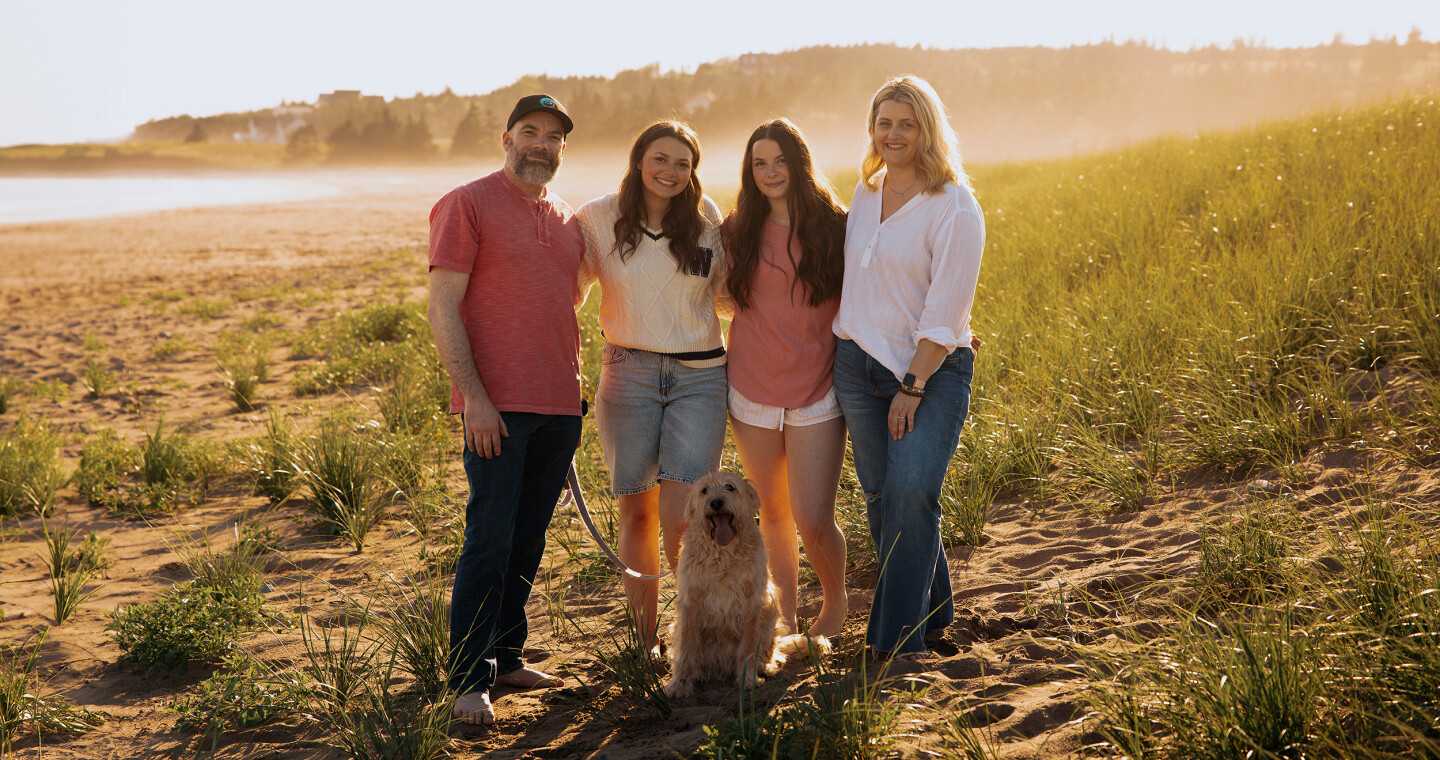
When Mia Williams, second from left, was a young girl, she didn’t like things getting dirty and even going to the beach was difficult. Now, after treatment for OCD, Mia loves spending time at the beach. From left, Mia’s father Mark, Mia, her sister Callie, her mom Shauna, and family dog Lucy at Conrad’s Beach, near Halifax, Nova Scotia.
In high school, Mia Williams was the picture of success. She was excelling in school, was student council president, and was on Team Canada for cheer, a sport she was passionate about. Outwardly, she had it all figured out.
But inwardly, the teen from Halifax, Nova Scotia, was in turmoil. “There were a lot of intrusive thoughts,” says Mia, who was struggling to control compulsions such as flicking a light switch five times or ‘knocking wood’ on her head three times before a tumbling pass at cheer. If she didn’t do these things, Mia believed something really bad would happen.
Her parents had noticed quirks but weren’t overly concerned because Mia seemed fine otherwise. “She always excelled in school, was always involved in everything,” says Mia’s mom, Shauna. “We didn't at first really know anything was going on.”
But during a 20-hour drive to Ontario for a cheer competition, Mia was anxious. Every time the family stopped somewhere, Mia took a really long time in the washroom. “By the time we got to Ontario, her hands were bloody and raw from washing them,” says Shauna.
Mia eventually got help at IWK Health in Halifax, where she was diagnosed with obsessive-compulsive disorder (OCD). "Sometimes when you're trying to explain OCD, where your concerns sound so unrealistic and stupid, it's almost embarrassing,” says Mia. “At the IWK was the first time I felt like I could say anything, and I just felt so safe.”
GROUNDBREAKING INITIATIVE
Providing a safe, healing place for children, youth and their families when they seek help at one of Canada’s 13 children’s hospitals is at the core of Family of Support: Child and Youth Mental Health Initiative.
Launched in 2020, the groundbreaking partnership between Canada’s Children’s Hospital Foundations (CCHF), The Sobey Foundation and Empire Company Ltd., the parent of Sobeys Inc., is aimed at building a Canada-wide circle of care addressing child and youth mental health.
These children's hospitals draw in the most incredible people, the leaders and individuals who are on the cutting edge of mental health treatment. And as a result of that, when a family in crisis walks through the doors, the best of the best are there to catch them.
Adam Starkman
President, and CEO of Canada's Children's Hospital Foundations
“We need mental health to be on everyone's radar because the earlier we can provide the care and the support to children and families, the better the outcome,” says Adam Starkman, President, and CEO of Canada's Children's Hospital Foundations, based in Toronto, Ontario.
The groundbreaking national partnership funds local mental health programs to support specific provincial needs at Canada’s children’s hospitals. These programs are working to decrease stigma, strengthen families, and help more children and youth access the help they need. Each children’s hospital is able to direct where and how the funds can be used to make the biggest difference.
“The Sobey Foundation and Sobeys Inc. have struck a phenomenal balance where they have identified early intervention as key,” says Adam. “But they have said how we invest in early intervention needs to be guided by the experts for that community and for that hospital.”
Family of Support is helping to build environments that bring a sense of safety and confidence to young patients and their families. “We help to fund those people and those programs and those institutions so that when a family walks in the door, the right people are there because the hospital is resourced to do the kind of work that they need to do,” says Adam.
The programs, research and innovations that are being funded through Family of Support, in turn, attract individuals who are dedicated to providing an unsurpassed level of care. “These children's hospitals draw in the most incredible people, the leaders and individuals who are on the cutting edge of mental health treatment. And as a result of that, when a family in crisis walks through the doors, the best of the best are there to catch them,” says Adam.
A STORY OF HOPE
Dr. Alexa Bagnell sees first-hand how daunting it is for some children, youth and families to seek help when they are facing a mental health crisis. It could be that OCD has kept a child inside for months, making simply leaving the house a monumental ordeal. Or that crippling depression has left an adolescent with thoughts they are too scared to share.
So when these patients and their families finally do make it to the hospital, the response needs to be swift, confident and informed. “That first contact with youth is so critical because asking for help is a big deal, and not everyone asks twice,” says Dr. Bagnell, Chief of Psychiatry at IWK Health. “How do we make it seamless so that youth, children and families really feel like there is a whole community of support behind them?”
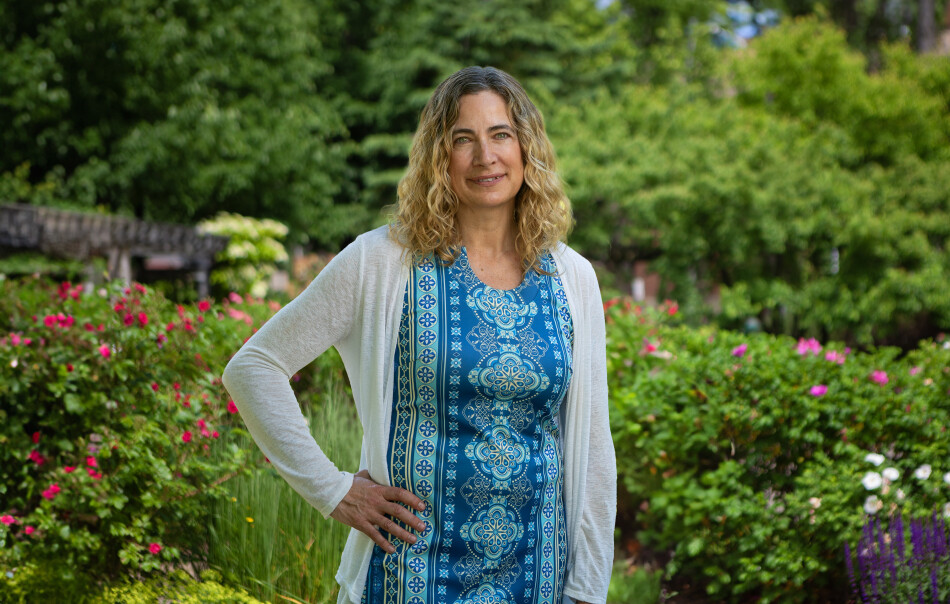
Building relationships with communities, and knowing the challenges they face, is a vital component of building a system that can support children, youth and their families, says Dr. Bagnell. “We learn about what's going on in communities and how to tailor programs to make it possible for communities to support their youth.”
As the only children’s hospital east of Montreal, the IWK’s ability to share knowledge and provide support across a wide geographical area is vital. The Learning Link, the IWK’s project funded by Family of Support, has been created to address that challenge. “As a clinician, you don't need to know it all,” says Dr. Bagnell. “You just need to know you’ve got support.”
Dr. Lori Wozney, Scientific Lead for Mental Health and Addictions, a new role within the IWK, is focused on creating a system that’s responsive to the changing needs of the community. One component of that system is called Shelf, a knowledge management tool that gives all the people in the program a portal to get information quickly. “It brings the best and most recent knowledge, literally a click away,” says Dr. Wozney. “It has been an incredible resource for our whole team.”
Another component of the Learning Link is Greenspace, a measurement-based care platform that provides a detailed window into what youth and clinicians are experiencing in therapeutic sessions. “It really informs decision-making with youth and families about where to go with treatment, how it's going, and reflecting on that process,” says Dr. Wozney. “Having insights into those outcomes changes the conversations about what we need to focus on together. It's been very impactful.”
Two-way learning is at the heart of the Learning Link’s programs and approach. “It’s not about the IWK dictating and it’s not just passing on information,” says Dr. Bagnell, who is also Professor & Head, Division of Child and Adolescent Psychiatry at Dalhousie University. “It's sharing information and then collaborating together to improve access and to support the people in the community who are doing the great work. And then being there when needed.
“This is a real story of hope. Bringing together innovation, resources, what we know about engagement and true open sharing, to improve a system of care,” says Dr. Bagnell. “We absolutely need to do this together.”
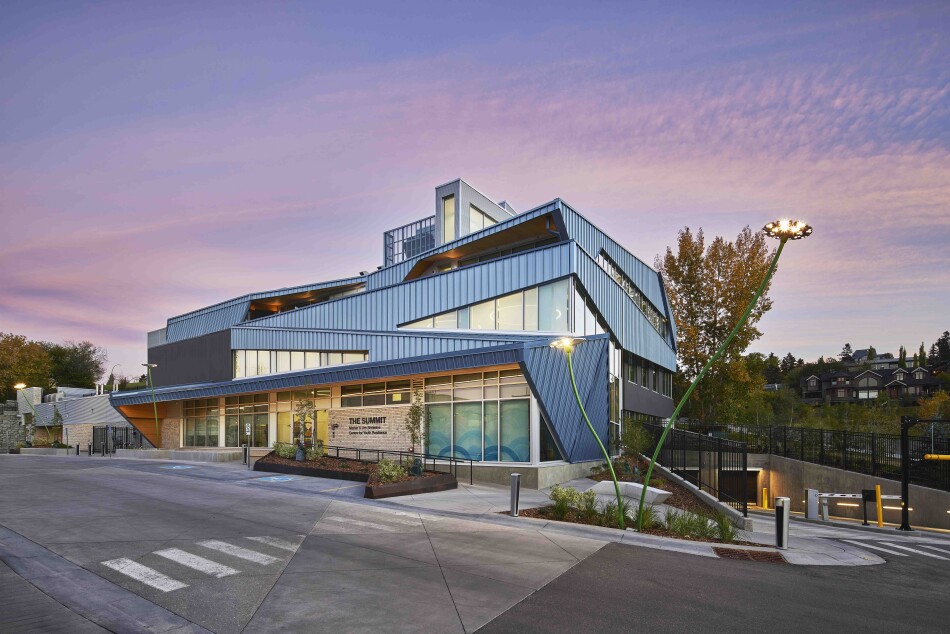
The Summit, Calgary’s first community-based mental health centre for young people, is expected to help about 8,000 children, youth and their families every year.
THE SUMMIT BUILDS RESILIENCE
In Calgary, an innovative, community-based mental health centre for young people opened in 2023 to address an area of need. The Summit: Marian & Jim Sinneave Centre for Youth Resilience provides comprehensive support to the sub-acute population. “It's the kids who often need more care than they're receiving. Symptoms are getting worse, the acuity is increasing. They're the kids whose trajectory is going towards hospital,” says Ryan Clements, Program Manager of The Summit.
The Summit provides three main programs: walk-in services, intensive community treatment services, and a day hospital. Together, these programs provide children, youth and families with a comprehensive continuum of care.
The walk-in service was designed to support those families who would typically show up in the emergency department, where the setting and triage structure is not conducive to mental health. In contrast, The Summit provides a calm and stabilizing environment. “You get an hour with our family counsellor, we talk about and look at what's going on that's put your family in crisis and ask what do you need right now to stabilize things?” says Ryan. “These are really high-risk kids who are being supported through us.”
The intensive community treatment services are for kids and families who are typically involved in another program within the community where the intensity and frequency of therapy is low. “Those kids, maybe their symptoms aren't improving. There's a missing piece,” says Ryan. The Summit is able to provide more therapy over a shorter period of time in programs that include art therapy, music therapy, play therapy, and horticulture therapy, along with individual, family and group therapy.
The day hospital is aimed at supporting kids as they transition from hospital back to home, their school and their community, ensuring those patients seamlessly return to their own environments and don’t end up back in hospital.
Another key element of the centre is integrating research into care. The innovative program is embedded in The Summit and led by researchers at the University of Calgary and the Alberta Children's Hospital Research Institute. Researchers have created a registry that connects interested youth and families accessing mental health services with current mental health studies, linking discovery and care.
“We’re not just trying to cure people or fix people, but we're actually looking into what it means to be resilient in the future,” says Ryan. “That's what we pay attention to.”
The involvement of The Sobey Foundation and Sobeys Inc., through Family of Support, is crucial because it means more than simply financial support for The Summit. It also means bringing the conversation around mental health out into the public. “The general understanding and recognition of mental health and well-being is so important to our communities moving forward,” says Ryan.
A TRUSTED PARTNERSHIP
The desire of The Sobey Foundation and Sobeys Inc. to work in the mental health space and tackle children’s mental health is a natural progression. “The Sobey Foundation, the Sobey family, and the company are coming to this genuinely,” says Jennifer Gillivan, President and CEO of the IWK Foundation, citing other examples of their involvement such as the establishment in 2015 of the Sobey Family Chair in Child and Adolescent Mental Health Outcomes, a first in Canada.
That depth of commitment and involvement has helped create a relationship built on mutual trust and respect, both of which are key when tackling an issue that does not have a quick fix, says Jennifer, who was Chair of the CCHF Board of Directors when Family of Support was created. “It takes some doing to have the patience to build the gravitas and depth across the country. It takes trust. This is a true partnership – it's not a sponsorship.”
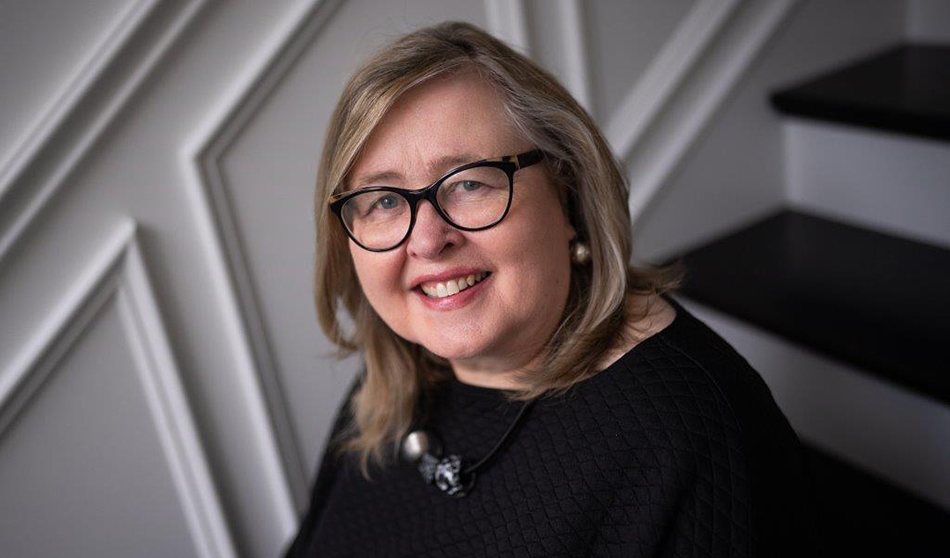
Jennifer Gillivan, who was Chair of the CCHF Board of Directors when Family of Support was created, says what has surprised her the most over the course of the last four years, is the volume of children and youth seeking mental health care. “We're seeing record levels and it's the same across the country. It just doesn't matter what age, what demographic, what background, what culture,” says Jennifer, who is President and CEO of the IWK Foundation. “And we're all working really hard to try and help.”
That partnership is unique because The Sobey Foundation and Sobeys Inc., recognized the benefit of listening to the professionals who are doing the work on the ground.
“I have to really give credit to The Sobey Foundation, the Sobey family and Sobeys Inc., for having the wherewithal and the patience to trust us and to just go on the journey with us,” says Jennifer. “They asked each hospital what is the area that would have the biggest impact? They didn't prescribe certain things. They trusted that these 13 hospitals know what they're doing.”
As the initiative enters its fifth year, results will start to become apparent. “You are going to see a huge impact on the lives of children across Canada in this very delicate, difficult area. It's the disease of our time and It's a tough one,” says Jennifer. “The ramifications and the benefits of each of those projects, it's like a stone going into the river. It ripples out and it helps and enables other integrated areas.”
COMMUNITY OF SUPPORT
Family of Support is structured so that the individual hospitals are the focus, not the CCHF brand. It’s an important distinction that recognizes the emotional connection people have with ‘their’ children’s hospital and the anchor role those hospitals play in the community.
“The way this community in Toronto feels about Sick Kids is the way that the community in Atlantic Canada feels about the IWK. It's the way that the community feels about the Stollery in Edmonton, about Jim Pattison Children's Hospital in Saskatchewan,” says Adam Starkman. “These are remarkable, remarkable hospitals and organizations. The communities adore them, they rely on them, they trust them.”
That trust is vital. “In mental health, the journey is long and complicated, with false starts and twists and turns. It's a very messy experience until you find the right person or the right office or the right level of care. And as soon as you have that, then the calm starts to set in. And then you can deal with what's happening, and you can deal with what the outcomes are, and you can deal with the next steps,” says Adam.

Mia, who speaks out now to encourage others to seek support, is extremely thankful for the care she received. “Without them I wouldn't be going to university and pursuing what I love.”
For Mia Williams, having that family of support changed everything. “The IWK really did save my life. If I didn't get their help, I would not have done any of the things that I am doing. I would not have put myself out there,” says Mia, who is now majoring in drama with a concentration in musical theatre at Bishop’s University in Sherbrooke, Que. “I still feel like they're there for me. It's still a family, it’s still home.”
Mia is open about her experiences because she wants to let other youth know that help is available if they are struggling with their mental health. “Don't be silent about it. Even if you think what you're going through is stupid or dumb and it's just in your head, it's not. Just know that you're not alone.”
It was a relief to get help at the IWK, says Mia. “At the IWK was the first time I felt like I could say anything, and I just felt so safe.” For Mia, having a family of support changed everything. “The IWK really did save my life.” Mia excels at cheer, even winning gold at worlds for team Canada. For her it became a safe space where she didn’t have to worry about anything. Initially Mark and Shauna Williams didn’t realize how serious the OCD was and how it was taking over their daughter’s thoughts. “It wasn’t until we had those first meetings with Mia's doctor,” says Mark. “And then it was quite a rude awakening for me.” Mia always got top marks at school despite her struggles with OCD. “She always excelled in school, was always involved in everything,” says Mia’s mom, Shauna. “We didn't at first really know anything was going on.” Leaving home to attend Bishop’s University in Sherbrooke, Que., was a big step for Mia. But she is now thriving as a drama major. “Without the IWK, I wouldn't be going to university and pursuing what I love.”





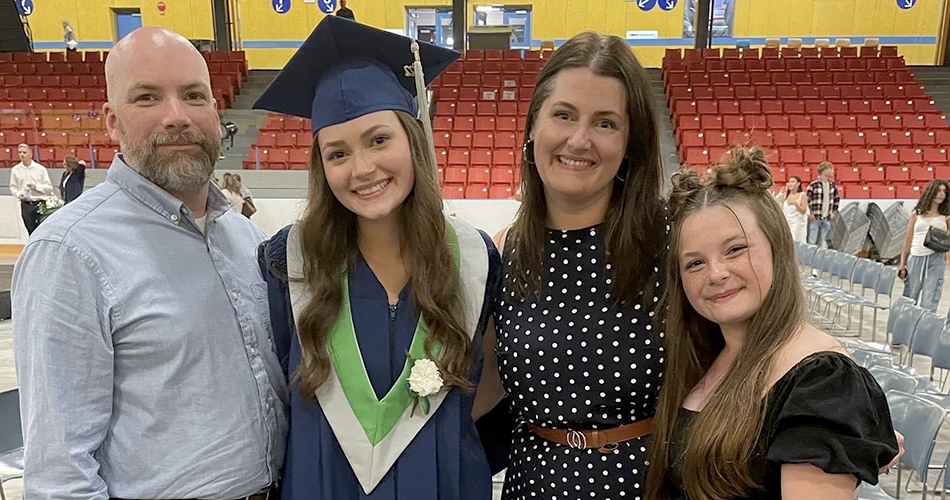

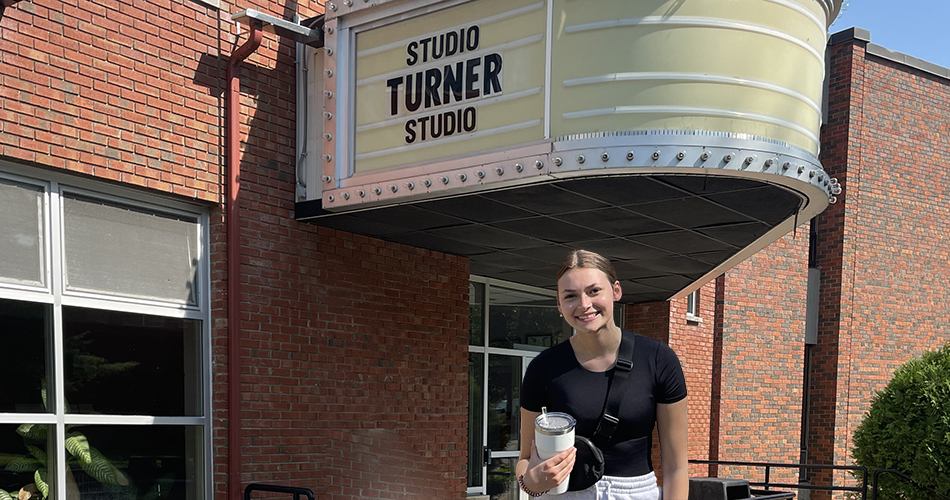
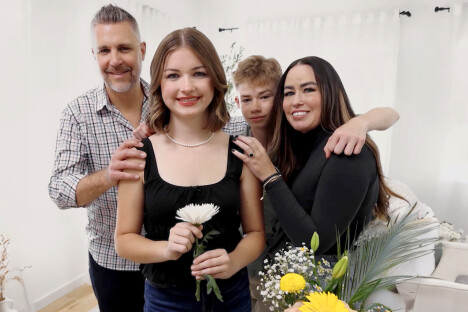
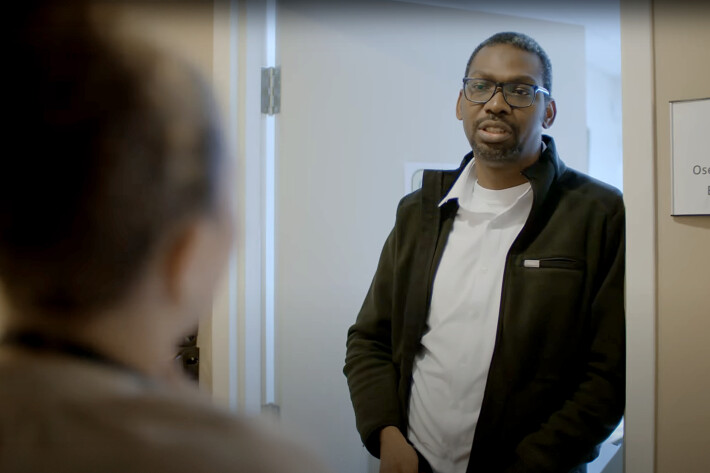
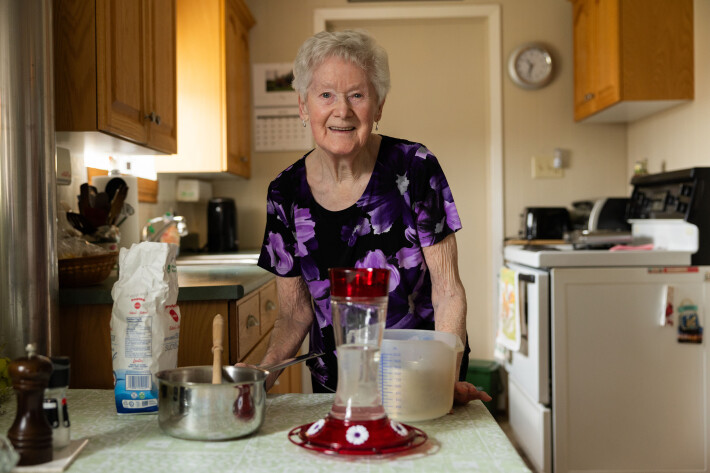
 Back to Stories
Back to Stories
